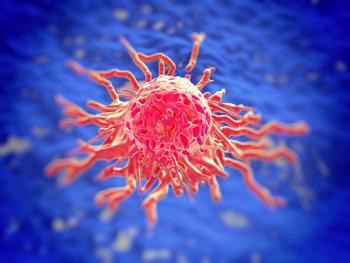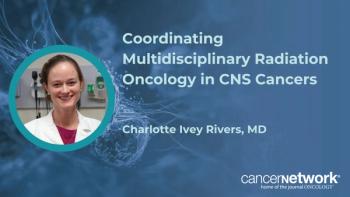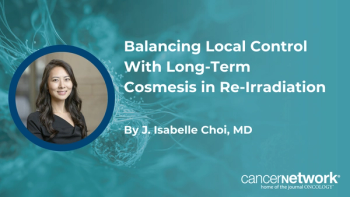
Francesco Ravera, MD, PhD, on Results of cfDNA Versus MRI to Predict pCR After Neoadjuvant Therapy in Breast Cancer
CancerNetwork® spoke with Francesco Ravera, MD, PhD, during the American Association for Cancer Research Annual Meeting 2021 to discuss results of a study aimed at determining pathological complete response in patients with locally advanced breast cancer by either cell-free DNA assessment or traditional MRI.
CancerNetwork® sat down with Francesco Ravera, MD, PhD, fellow in the Department of Internal Medicine at the University of Genoa in Italy, to discuss results of his research that were presented at the American Association for Cancer Research (AACR) Annual Meeting 2021. He and his fellow investigators determined that predicting pathological complete response by plasma cell-free DNA was more accurate than MRI following neoadjuvant chemotherapy in patients with locally advanced breast cancer. These results may have the potential to spare patients from undergoing invasive nodal biopsies in the future.
Transcription:
Cell-free DNA integrity was able to reach a global accuracy of 81%, with 81.8% sensitivity and 81.5% specificity. MRI instead achieved an overall accuracy of 77.1%, with a sensitivity and specificity, respectively, of 72.7% and 81.5%.
The 2 techniques combined, however, achieved a [combined] predictive value of 87.5%, and a predictive value of absence of complete responses of 95.7%. This value is particularly interesting if we consider the patients assessed as complete responders by both methods. In particular, 7 out of 8 patients were effectively complete responders. We only misclassified patients by both cell-free DNA integrity index and MRI when presented [with] the residual T1 microscope neoplasia in breast with a disease pre-axial, so we can say that the combination of the 2 techniques was able to assess the natural response with a predictive value or complete response of 100%.
This is particularly interesting if we consider the potential application of this combination. In fact, we think that an accurate method for the assessment of the nodal residual disease or nodal complete response may spare biopsy in those patients who are assessed as complete responders.
Reference
Cirmena G, Ferrando L, Ravera F, et al. Plasma cell-free DNA integrity predicts the achievement of pathological complete response to neoadjuvant chemotherapy in breast cancer patients. Presented at: AACR Annual Meeting 2021; April 10-15, 2021; virtual. Abstract LB063.
Newsletter
Stay up to date on recent advances in the multidisciplinary approach to cancer.












































